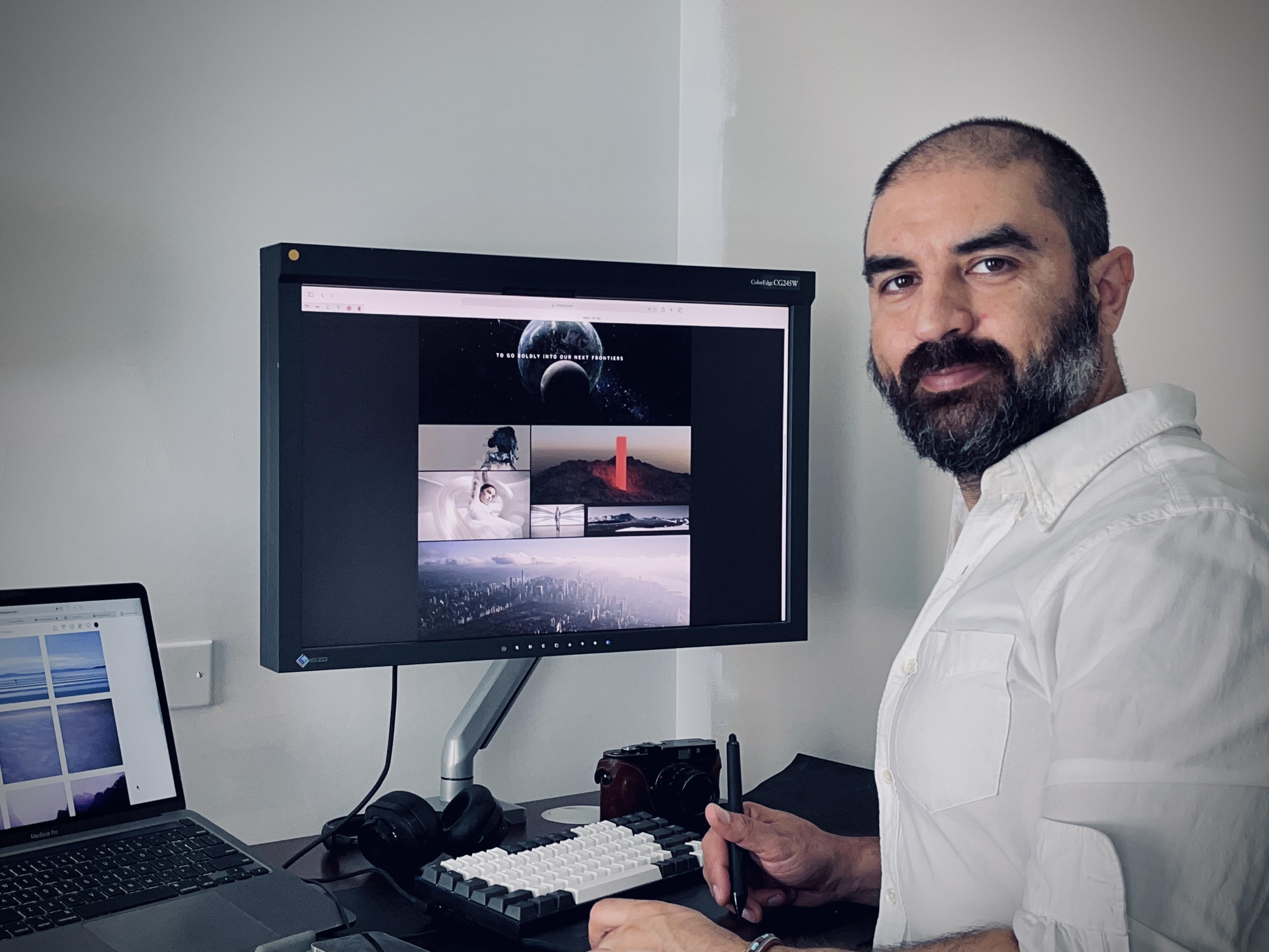We recently caught up with Navid Bagherzadeh, a Hoboken-based lead compositor and visual effects artist currently working at Framestore NY. His credits include features such as In the Heights (which we recommend seeing in a theater if you can!), Hostiles, Logan Lucky, and shows such as The Marvelous Mrs. Maisel, City On a Hill, The Deuce, and The Knick. (View his IMDB page)
Discover why he can’t live without Mocha Pro inside his Nuke workflow.

What type of VFX tasks do you typically tackle as a compositor? Everything from live-action paint clean-up to CG integration and managing other artists. I rely on Mocha, Nuke, Blender, Cinema 4D, and Photoshop.
How did you first discover Mocha Pro and how long have you been using it? About 6 years ago my comp supervisor at Phosphene showed me when I was working on the HBO miniseries Show Me a Hero and I was blown away with its integration with Nuke and how it made impossible tracking tasks effortless.
How has having access to Mocha Pro in your Nuke pipeline changed the way you work? Mocha has hands down been the biggest game-changer for me since learning Nuke. Shots that would have been previously impossible to track are now easily tackled by combining Mocha and Nuke together. Whenever I have a tracking assignment, my first instinct is to go to Mocha.
What Mocha feature do you use most — and why? I’m a big fan of the mesh tracker (PowerMesh) that has just been added, but the feature I use most has to be tracking spline shapes then pasting them into Nuke and using them as spline warps for reverse stabilization.
Reverse stabilization (match-moving) allows you to view your stabilized track, then add, paint, and do any work you need to do to that region then reverse the tracking to apply it to the original plate. Spline warps allow for more fluid shapes being tracked as opposed to regular corner pins (planar tracks).
What is the most difficult shot you’ve ever tracked with Mocha Pro? One of the most difficult shots was for the TV show The Knick. I had a series of close-up shots of actor Andre Holland guiding another doctor to perform eye surgery on him. We had to film a silicone replica of his head that we used to do the injections and interactions with the eyelids and skin. Then we had to combine that with the live-action plate.
What are your top 3 reasons why compositors like yourself should incorporate Mocha Pro into their pipeline? It makes a compositor’s job a lot easier, it saves so much time and allows for really accurate work.
What’s your best pro tip to artists new to Mocha Pro? Get comfortable with all the features, different tracking tools, and different methods of tracking in Mocha. Sometimes corner pins are enough but other times you need to combine spline shapes together.
The best approach is to always generate a stabilized plate or region then match move it back. That way you can check how good your track is. I often see other artists use tracks to just apply directly to the plate but then they have to constantly refine the track as they go because they don’t have a solid track to start with and no way to test it out. Stabilize then match move every time!
Have you tried out the new PowerMesh feature in Mocha Pro 2021? What do you think? I used it recently on a commercial at Framestore and I was really impressed. I had to remove creases from a woman’s shirt as she was walking towards the camera. It would have been really difficult without it.
Do you have any feature requests for the Boris FX product designers? The dope sheet is in dire need of some UI refinements ;)
What’s your favorite project you’ve ever worked on — and why? I did some comping and matte painting work on Scott Cooper’s Hostiles with Christian Bale. It was a really fun creative project to work on and such a great movie to watch.
Download a free trial of Mocha Pro.
By Jessie Electa Petrov, July 15, 2021